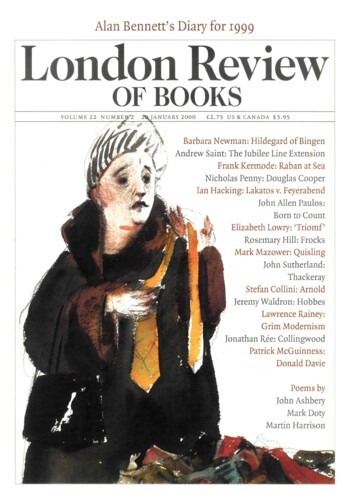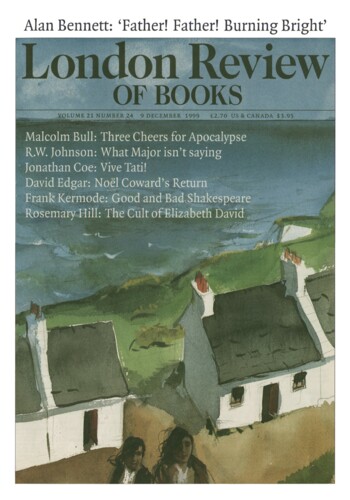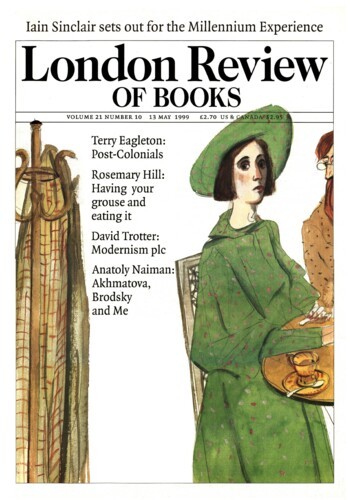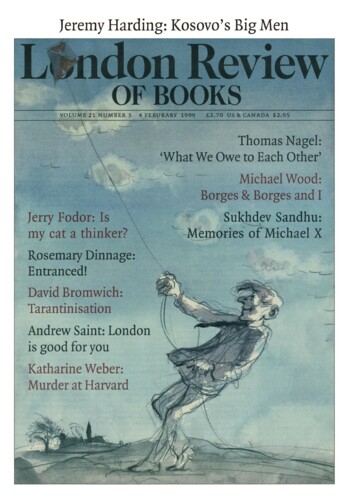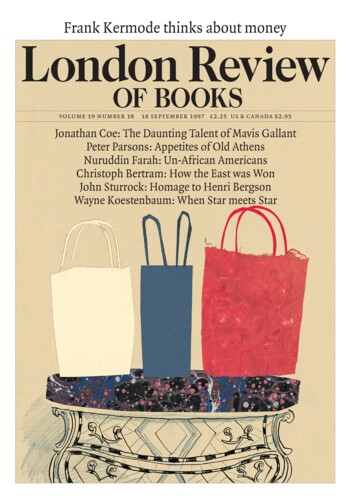Frock Consciousness: fashion and frocks
Rosemary Hill, 20 January 2000
In A Journal of the Plague Year Defoe’s narrator keeps an eye on premises belonging to his brother, who has taken his own family out of the stricken city. Walking one day towards the warehouse in Swan Alley near London Wall he meets, in the otherwise deserted street, three or four women coming toward him wearing high-crowned hats. Reaching the warehouse he finds it broken open. Inside, half a dozen more women are trying on a consignment of the hats, meant for export, ‘fitting themselves … as unconcerned and quiet as if they had been at a hatter’s shop’. It is a dream-like scene: the fashionable looters, each looking for her size, while around them London rots and grass grows in the Strand. It is also a striking demonstration of Freya Stark’s maxim that ‘there are few sorrows through which a new dress or hat will not send a little gleam of pleasure however fugitive.’‘
